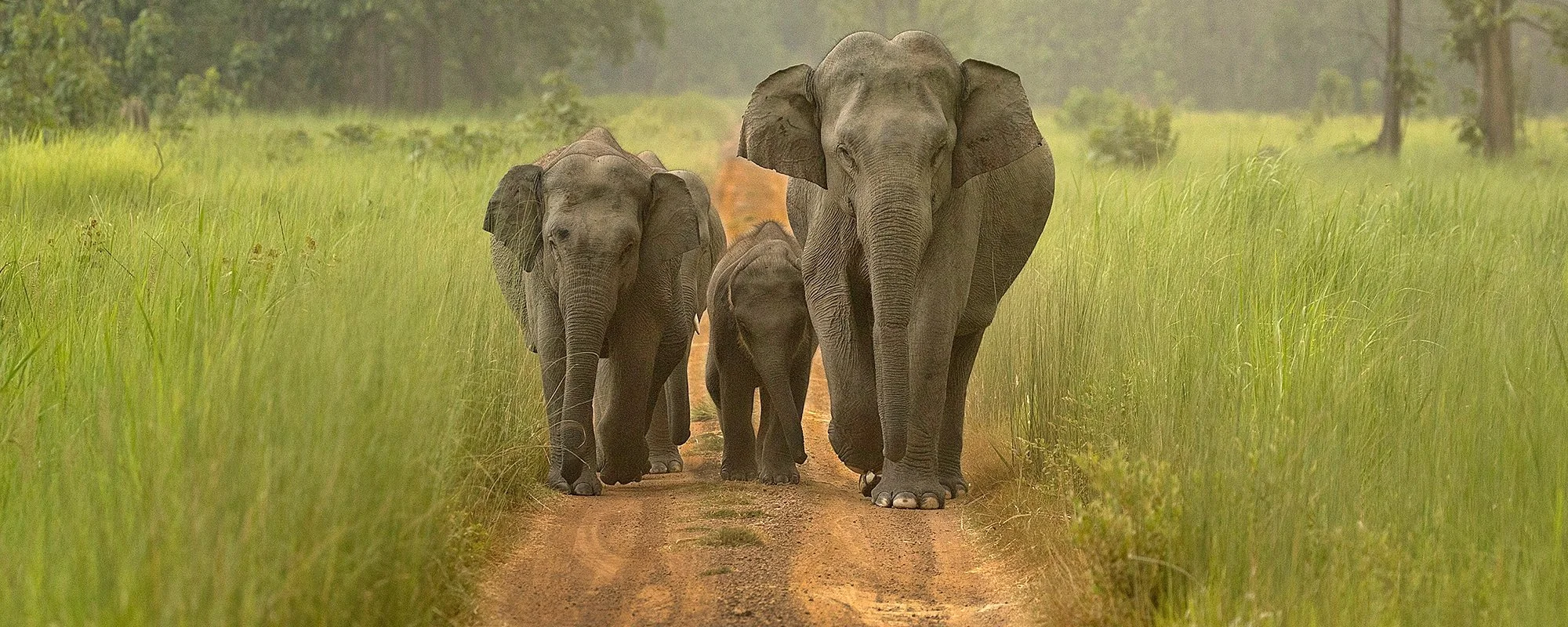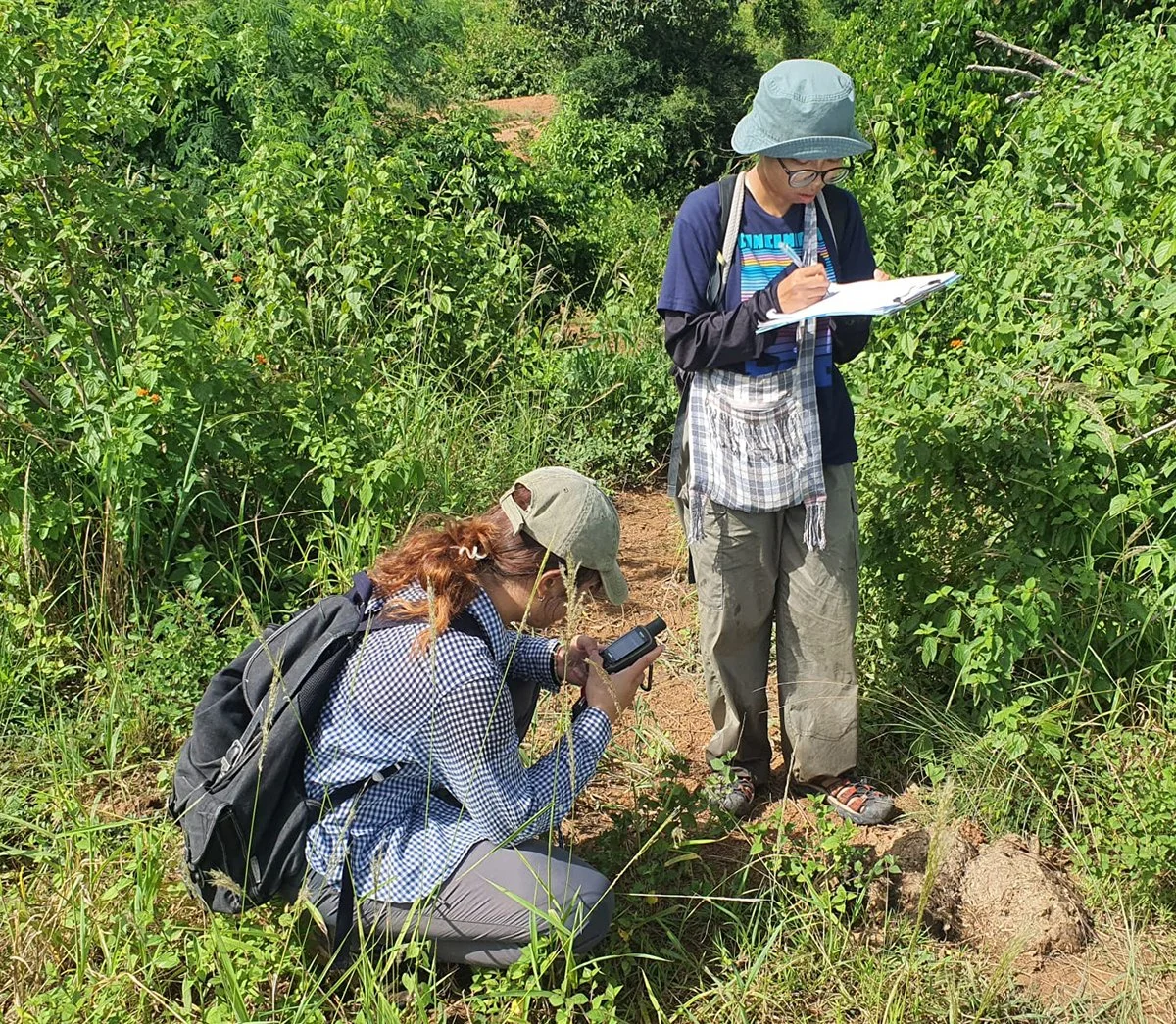Program Details
Location: Bangkok, Thailand
Dates: Fall 2026: September 30—November 12, 2026
Applications: Accepted on a rolling admission basis
Accommodations: Camping or rural lodge
Credits: 15 quarter credits or 10 semester credits
Language: English instruction
Courses: Environmental Wildlands Studies, Environmental Field Survey, Wildlands Environment and Culture
Prerequisites: One college level course in environmental studies, environmental science, ecology or similar. 18 years of age
Program Costs
Thailand Fall 2026
$ 150 Application Fee
$ 7,750 Program Fee
$ 4,750 In-Country Logistics Fee
$ 2,250 Estimated Airfare and Mandatory Travel Insurance
$ 800 Estimated Food and Personal Expenses
$15,700 Total Estimated Cost
Fall 2026: Program fees due by August 1, 2026
The Program
Our newest and most uniquely focused wildlife program examines the complex dynamics between Thailand’s magnificent Asian elephant and the surrounding communities that both support and struggle with these brilliant animals. Set amongst local farms, tropical forests, private reserves and managed land systems, Thailand's diverse ecosystems provide an exceptional field laboratory into the ecology and conservation of the Asian elephant (Elephas maximus), and the social-ecological systems of human-elephant interactions. With just over 4000 wild elephants existing in Thailand, and an interesting recent increase in population, our team will delve into the intricate relationship between species rehabilitation, wildlife conservation, sustainable agriculture, and community resilience.
Our journey will take us from the misty mountains of the Northern Thanon Thong Chai Range to the dense jungles of the Western Forest Complex to examine firsthand Thailand wild elephants, and experience Thailand’s incredible biodiversity – farmland and jungle that most visitors never get to see. You'll work alongside mahouts (elephant caretakers) at one of Thailand’s most ethical elephant sanctuaries to learn about elephant biology and ecology, building skills in behavior observation and individual identification, which we will later apply to our investigation of wild herds. Joining us at specific locations, experts in tropical forest ecology, biodiversity, and sustainable agriculture will demonstrate how Thailand’s elephant habitats have changed and are more resilient in the face of development and climate change. We will visit three of Thailand’s incredible and breathtaking protected areas to study wildlife behavior, field-based research methods, and meet local and Indigenous communities living and working in these agroecosystems to gain a deeper understanding of their experiences, challenges, and profound ecological knowledge. Every experience is designed to show you how successful conservation must support the needs of both wildlife and the people who share these landscapes.
Team members on our Thailand Elephant Program will gain practical skills in field research, land management, and local stewardship while making meaningful contributions and providing support to a real-world conservation challenge, a more productive human-elephant coexistence. Immersive fieldwork will provide direct engagement with local stakeholders, including conservation biologists, innovative environmental scientists, and affected community members.
By the program's conclusion, participants will think holistically like conservation scientists, understanding elephants, forests, and agricultural landscapes as deeply interconnected components within complex socio-ecological systems. Students will leave equipped with practical interdisciplinary research skills in wildlife observation, habitat assessment, biodiversity monitoring, and community engagement. Whether you are interested in wildlife biology, environmental science, sustainable agriculture, or community development, this program highlights how integrated approaches create meaningful and lasting conservation outcomes for both wildlife and people.
Academic Syllabus
Student Program Manual
Tyler Nuckols
LEAD INSTRUCTOrPhD Candidate in Environmental Studies, University of colorado
Tyler is a social-ecological scientist whose decade of work across Southeast Asia and North America examines how power dynamics and structural inequalities shape human-environment relationships. His research on human-elephant coexistence in Thailand integrates community perspectives, Indigenous knowledge systems, and justice frameworks to develop conflict mitigation strategies balancing ecological integrity with social equity. As an educator and practitioner, Tyler designs courses that critically examine conservation theory while training stakeholders in practical and participatory methods spanning social and ecological sciences. Drawing from backgrounds in environmental sciences, political ecology, and conservation social sciences, he guides learners in research approaches that are both scientifically rigorous and socially just, preparing them to navigate the ethical complexities of environmental decision-making. Tyler leads our Thailand program.


















